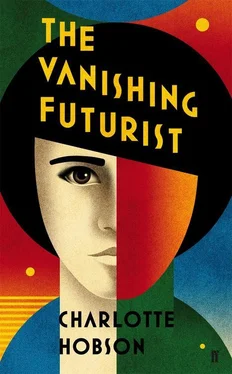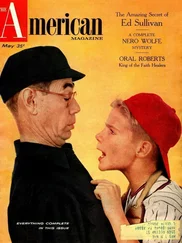‘She must have been an excellent teacher.’
‘I hate to correct you, but you probably mean, “She’s done a grand job”, don’t you?’
‘Oh, for goodness’ sake, Pasha, don’t start teasing her already,’ snapped Sonya. ‘Ah, here come your charges, Miss Freely – my youngest brother and sister, Dima and Liza—’
They arrived panting and grinning – a solid, fair-haired boy and a taller, skinny girl with plaits.
‘Hello, miss. Do you speak Russian?’ the girl asked.
‘No, not yet—’
‘Then I say to you what servants are saying,’ she told me. ‘They are saying, in England all ladies ride bareback like monkeys. Is it true? I want to ride bareback.’
‘Liza!’ hissed Sonya. ‘Miss Freely, do come this way. My father is looking forward to meeting you.’
Dima put his hand in mine. ‘I am waiting and waiting for you, miss,’ he said sweetly. ‘Papa says you will teach me Rugby football.’
In the study Mr Kobelev, a tall, slight man with a grey-streaked beard, came forward to greet me. ‘Welcome, welcome, my dear Miss Freely – sit down with us, drink some tea. You must be tired.’
I took a seat. As the room was painted dark green, full of smoke, and unlit, I could barely see who was opposite me. At last I made out two ancient ladies – the old governess Mamzelle and Mr Kobelev’s aunt – behind a large brass samovar, bobbing their heads and smiling at me. I bobbed and smiled back, and they waggled their heads all the more energetically.
Pasha came to my rescue, murmuring at me to stop first. ‘Otherwise you could be nodding at each other for days.’
‘Is that why the last governess left?’
‘Yes, a very sad business. In the end her head fell off.’
‘Is she ill?’ the aunt said loudly to Mr Kobelev, in French. ‘She’s making barbaric noises.’
‘No, no, Aunt, soyez tranquille .’ He leant across to talk to me. ‘So, my dear, you have met the children already.’ He was in his late fifties, I supposed, but seemed younger, with the same dark-brown eyes as Pasha. He pulled Dima to him and stroked his cheek. ‘They are good children, though perhaps a little wild, eh, you monkeys? I have always encouraged them to be free-thinkers. And I must warn you, in this house we do not believe in discipline for its own sake, and certainly not in the nursery.’
‘I am glad to hear it,’ I said. ‘Being too strict with children is a failure of imagination.’
‘Good, good,’ he replied vaguely. ‘You see, Miss Freely, their poor mother is ill, and I am very often away on business. They have not had an easy childhood.’
‘Oh, I’m so sorry.’ Miss Clegg had intimated that Mrs Kobelev had some kind of health trouble, but she didn’t know the nature of it; all she had heard was that the poor lady hardly left the house. ‘Is she… is she well enough to meet me?’
Mr Kobelev called to his daughter. ‘Sonya! Why not take Miss Freely to meet your mother straight away?’
Sonya frowned. ‘If you think it is the right time, Papa…’
‘It’s never the right time. Now will do as well as any.’
So I was shown immediately to Mrs Kobelev’s room, the heart of the house, dark and hot and smelling of face powder and eau de cologne and slept-in sheets and violet lozenges. I stopped in the doorway, uncertain how to advance; but after a moment or two my eyes became accustomed enough for me to make out a great deal of furniture, occasional tables and objects, and a chaise longue pushed against the wall, with a figure lying under several rugs.
‘Enter.’
‘Mama? Here’s Miss Freely – the English governess.’
‘How do you do, Miss Freely?’ Sofia Pavlovna Kobelev turned slowly and I saw a thin, expressionless face.
‘Very well, Madame. I am sorry to find you indisposed.’
‘Yes… please, forgive my English, I do not speak it these days.’ She spoke in a monotone, barely moving her lips; and altogether she was so slight and so still, underneath her rugs, that I wondered if she was paralysed. ‘Tell me, have you met my little ones, how do you find them?’
‘Well, we’ve hardly met, but I’m sure we will get along very well. I shall bring you a timetable of their lessons…’
‘My husband will be in charge of all of that.’
‘Oh, yes, I see – well, perhaps you would like me to give you a report on their progress each week, or month?’
‘Each month, yes, indeed,’ Sofia Pavlovna agreed faintly.
‘I think that’s enough, Miss Freely,’ said Sonya. ‘Shall we go?’
I followed Sonya out onto the landing, where Pasha was waiting for us.
‘So you’ve met the invalid,’ he said sardonically. ‘Don’t expect her to show any more interest in you.’
‘Your poor mother. What is… is she…’ I didn’t know quite how to ask.
‘My mother has neurasthenia,’ Sonya said, pursing her lips. ‘She’s suffered from it for many years, since Dima was one or two. It’s a nervous disease. She has to stay in bed most days, although now and again she manages a meal downstairs. Liza and Dima visit her in the evenings, if she is feeling well enough. We’re all quite used to it – but for goodness’ sake, don’t worry her with the children’s progress. If there’s anything you need, my father is the one to approach. Now, let me show you to your room.’
Her tone did not invite further discussion, and I discovered that this was the rule of the house. Mrs Kobelev’s illness was not mentioned, and we steered the course of our thoughts around her like ships beating against the wind.
Sonya said goodnight at the door of my bedroom, a small, high-ceilinged chamber with grey silk curtains that seemed shamefully luxurious to me. The one tall window was almost entirely obscured by the large fleshy green fans of a horse chestnut tree. I removed my soggy shoes and for a long time after she had left me I leant out of the window, breathing in the leafy sweet air. It was still light, hours after darkness would have fallen in Cornwall; this added to my disorientation. A woodpigeon sang, hidden somewhere inside the tree, and stopped – sang, and stopped – as though listening for an interloper. In the silence that followed, I found myself holding my breath.
* * *
Governesses are famously long-lived. When I met her in 1914, the Kobelevs’ retired governess Mamzelle was in her mid-eighties, timid and furry as a vole and still running errands for the whole family. She had outlasted all her relatives in France. As I write this I am not far from eighty myself. A whole lifetime has passed since I went to Russia. My daughter Sophy has grown-up sons of her own. My husband, Paul, died six months ago, and since then I have the strange sensation that the present, my creaky old body in the little terraced house in Hackney which we bought together, is no longer my home.
For several months Sophy has been trying to persuade me to clear the attic of a lifetime of accumulated papers, and I have been feebly resisting. She is quite right that it must be done, of course; I know that. I am merely taking a moment to gird up my loins before I dredge Slavkin’s story up from its decades of silence. Last week Sophy, running out of patience, hauled several boxes down and left them by my chair.
‘Have a look through, Mama, and on Saturday I can throw out what you don’t want to keep.’
A peculiar smell wafts up to me from the boxes. It brings back my time in Russia even more clearly than its contents – the rank tobacco everyone smoked incessantly, the poor-quality ‘wartime’ paper, the fumes from the oil lamps. As I sift through I feel bemused by the scraps that have survived, from the utterly banal and pointless (a little printed prayer with a saccharine painting of St Barbara, a half-empty notebook) to things that grip my heart – letters from my parents and copies of my own letters to them, pages of earnest pieces of self-criticism written during the days of our commune, newspaper articles about Slavkin’s inventions, and photographs. Overexposed and faded, all that is preserved in the pictures of our young selves is a smudge of shadow for eyes and, on every face, a smile.
Читать дальше





![Майкл Муркок - Спящая волшебница / The Sleeping Sorceress [= Участь Белого Волка, Рыцарь Хаоса, The Vanishing Tower]](/books/327544/majkl-murkok-spyachaya-volshebnica-the-sleeping-sorc-thumb.webp)






